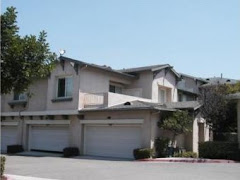Here's an old editorial I found dated October 15, 2006 from the LATimes.
NATION'S HOUSING
Some robust stats contradict the market-gone-bust reports
By Kenneth R. Harney, Washington Post Writers GroupOctober 15, 2006
WASHINGTON — With all the dismal reports about the home real estate market, don't lose track of something critically important: Mortgage interest rates have been falling quietly but steadily for months and are now at their lowest level in half a year, barely a percentage point above 40-year lows.
New mortgage applications are up sharply, the number of pending home sales is up, the national economy continues to expand moderately, and the rate of unemployment just declined again — to 4.6%.
All of which begs the question: Just what kind of housing bust is this anyway? With gloom-and-doom purveyors forecasting imminent crashes in dozens of metropolitan areas, how could such key fundamentals as jobs, interest rates and even pending home sales simultaneously be trending in the opposite direction?
Donald L. Kohn, the Federal Reserve's vice chairman, took a stab at that seeming conundrum in a recent speech at New York University. His views are worth keeping in mind if you want to put the negative news on home prices and sales in perspective.
To begin with the fundamental point: Kohn sees no imminent bust or crash in housing. It is a "correction" that's underway — a cyclical re-balancing of a marketplace that got too hot for too long in some parts of the country and is now heading back toward more "normal" conditions, where prices are more in line with what consumers can afford.
"The reported declines in house prices in a number of areas should help to facilitate the re-balancing of supply and demand in those markets," Kohn said. Not all home sellers have fully grasped the altered realities in their own local markets — that they've got to reduce their asking prices if they truly want to sell. So the process is still unfolding. Re-priced houses, in turn, should stimulate greater numbers of potential buyers to get off the sidelines and make offers. The unexpected 4.3% increase in the latest monthly number of pending home-sales contracts heading for closing nationwide reported Oct. 2 by the National Assn. of Realtors could be a sign that Kohn's prediction is already taking shape.
Second, said Kohn, the housing correction — expressed through new-home starts — suggests we are well on our way toward bottoming out and eventually returning to positive growth in new-home starts and resales.
Now to interest rates. Today's "unusually low" long-term mortgage rate environment "stands in sharp contrast to some past downturns in the housing market that followed actions by the Federal Reserve to tighten credit conditions significantly." Translation: Affordable mortgage money should help shorten the current housing down cycle compared with credit-squeezed periods in the 1980s, when mortgage rates sometimes exceeded 16% for fixed-rate loans.
A final key factor, according to Kohn: "Continuing growth in real incomes should underpin the demand for housing and, as home prices stop rising, help erode affordability constraints."
Add it all up: Lower asking and selling prices on houses are integral parts of the correction. Lower interest rates should make those lower prices affordable to a broader number of potential buyers. That could become an even more important factor if mortgage rates dip below 6% in the coming months, as some Wall Street capital market analysts expect.
5.75% a possibility
James Glassman, a managing director at JP Morgan Chase, says 30-year fixed-rate mortgages at 5.75% are a distinct possibility if long-term rates in the global bond market continue to ease.
So, what's the source of some of the confusion about just where housing is headed? Mike Moran, chief economist of Wall Street's Daiwa Securities America, minces no words: The financial press and TV news shows are over-dramatizing what is a normal and long-predicted cyclical re-balancing, and "portraying it as a catastrophe," he said Housing "is going through a correction that's badly needed," he said. "The key issue is whether it is orderly or disorderly" — and all signs point to a continued orderly process, not a breakout bust or panic.
Doug Duncan, chief economist of the Mortgage Bankers Assn., points out that national housing sales numbers are merely rolling back to 2003 levels — "and that was a record year." Serious sellers and buyers shouldn't be misled by predictions of imminent crashes, Duncan said. Not only do the doom reports ignore the positives out there in the marketplace — mortgage rates in particular — but also "the rhetoric is just way overwrought."
Kenneth R. Harney
Send me your comments or questions: Email: jliubaker@gmail.com
Jane Liu-Baker http://www.socalifgatedcommunities.com/ (310) 994-4188
Friday, November 21, 2008
Subscribe to:
Comments (Atom)



